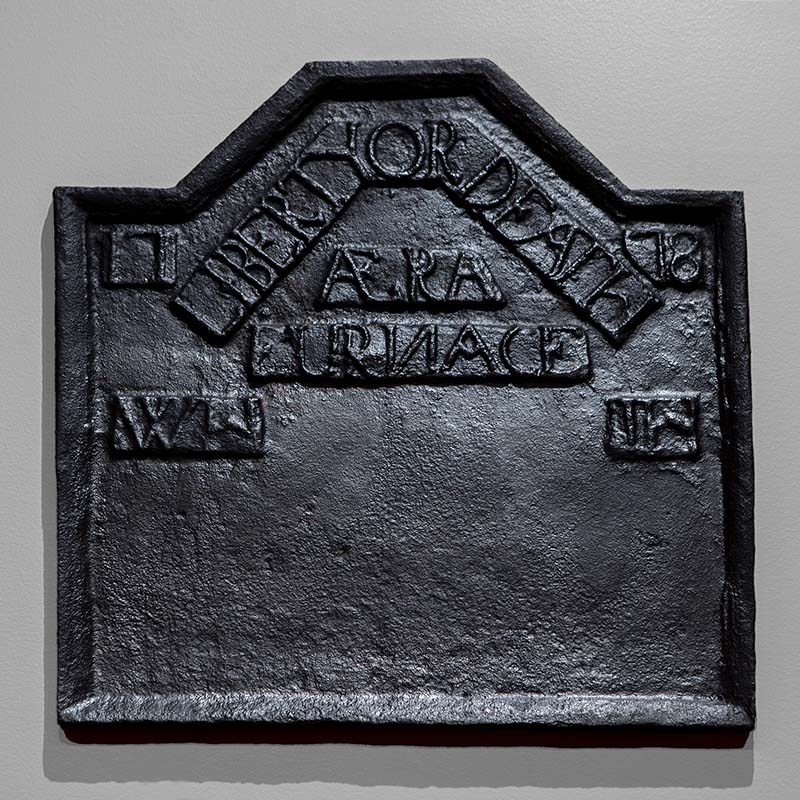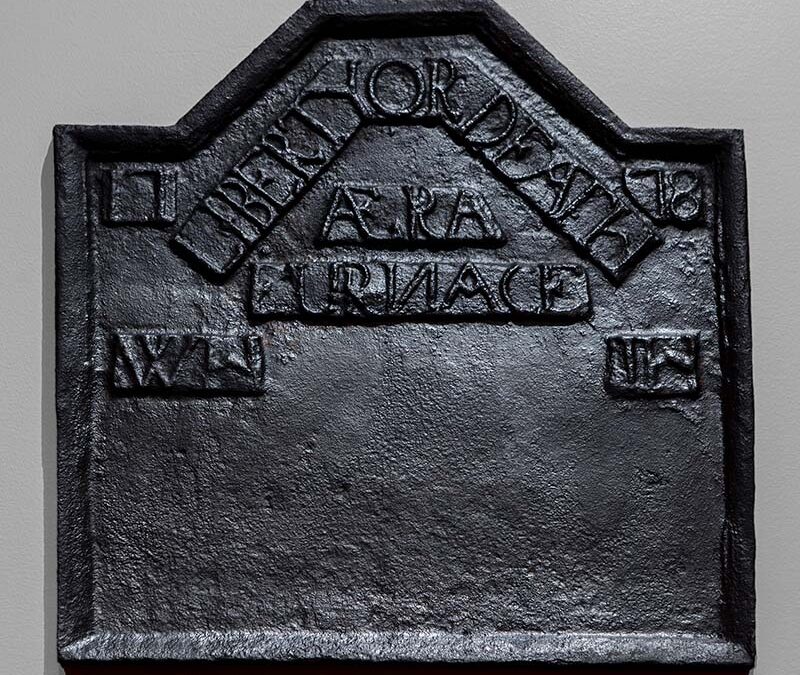Fireback

| Title | Fireback |
| Date of Creation | 1778 |
| Location | York County, South Carolina |
| Materials | Cast iron |
| Institution | Museum of Early Southern Decorative Arts |
| Credit Line | MESDA, Sprague Foundation Purchase Fund |
| Accession Number | 3119 |
| Photo Credit | Collection of the Museum of Early Southern Decorative Arts (MESDA)” |
In 1779, as the British prepared to set sail for Charleston, SC, from from New York City, the Aera Furnace in York County, SC, advertised its need of one hundred enslaved craftsmen. The furnace’s owners promised that “no situation in the State is more healthy and secure from an enemy.” At the furnace the newly arrived laborers were put to work making munitions for the American cause and household goods like this patriotic fireback emblazoned “Liberty or Death” – a profoundly ironic sentiment to any enslaved person aware of Lord Dunmore’s promise to free any slave who made it across British lines and took up arms in the British cause. Despite their assurances to slave owners that no location in the state was safer, the ironworks were destroyed by British troops in 1780. From the records of Colonel Isaac Hayne, partner in William Hill’s ironworks that included the Aera Furnace, we know some of the names of the enslaved individuals who worked at the operation in 1778. They include Harry, Sanch, Prince, Joe, Dick, Cato, Peggy, Sarah, Lindy, Judith, Nelly (daughter of Peggy), Flandus, Sue (daughter of Judith), Penda, Dida, Plato, Ovid, Festus, Felix, Octavia, Livia, Claudia, Fulvia, Zenobia, Cosbi, Tena (child of Peggy), Bob, Douglass, Eve, Celia (daughter of Peggy). When British troops burned the ironworks in 1780, these individuals may have had the opportunity to pursue freedom under the terms of Dunmore’s proclamation. We know at least 20 people of African descent left with the British troops that day.

